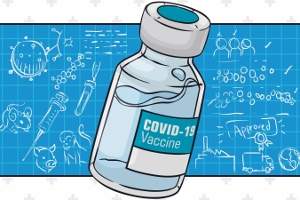On April 13, 2021 the CDC’s Advisory Committee on Immunization Practices (ACIP) recommended that people who are moderately to severely immunocompromised should receive an additional dose of mRNA COVID-19 vaccine after completing their two-dose series. The CDC media statement can be found here.
This recommendation comes after FDA modified the Emergency Use Authorizations (EUAs) on August 12, 2021 for Pfizer-BioNTech COVID-19 vaccine and Moderna COVID-19 vaccine to allow for administration of a third dose of an mRNA COVID-19 vaccine after an initial 2-dose primary mRNA COVID-19 vaccine series for certain immunocompromised people (i.e., people who have undergone solid organ transplantation or have been diagnosed with conditions that are considered to have an equivalent level of immunocompromise).
Key Recommendations for Providers
Moderately to severely immunocompromised patients should receive an additional dose of mRNA COVID-19 vaccine at least 28 days after a second dose of Pfizer-BioNTech COVID-19 vaccine or Moderna COVID-19 vaccine.
Additional Recommendations
- The age groups authorized to receive the additional dose are unchanged from those authorized to receive the primary vaccination series:
- Pfizer-BioNTech: aged ≥12 years
- Moderna: aged ≥18 years
- When presenting to a medical provider for receipt of the third dose, the CDC and OCHCA recommend that patients be allowed to self-attest that they have a qualifying medical condition without need of a doctor’s note.
- Ideally individuals who qualify should be vaccinated with the same vaccine as they received during their first and second dose. However, if that is not possible, receiving a third dose with another mRNA vaccine is acceptable.
- An additional vaccine dose is not currently recommended by the CDC for immunocompromised persons who received a single dose of the J&J vaccine. The FDA continues to evaluate data on the effectiveness of this vaccine for immunocompromised individuals.
- There is no indication for checking SARS-CoV-2 antibody titers either prior to, or post vaccination, in any individuals
- CDC does not recommend additional doses or booster doses for any other population at this time.
- While receiving a third COVID-19 mRNA vaccine dose is likely to increase protection in these patients, as a group they will remain at elevated risk for severe COVID-19. Even after receiving this dose, people who are immunocompromised should continue to take prevention measures including wearing a mask, staying 6 feet apart from others they do not live with, and avoiding crowds and poorly ventilated indoor spaces to protect themselves and those around them against COVID-19.
Background
People who are moderately to severely immunocompromised make up about 3% of the adult population and are especially vulnerable to COVID-19 because they are more at risk of serious, prolonged illness. Indications for a third mRNA dose include:
- Active treatment for solid tumor and hematologic malignancies
- Receipt of solid-organ transplant and taking immunosuppressive therapy
- Receipt of CAR-T-cell or hematopoietic stem cell transplant (within 2 years of transplantation or taking immunosuppression therapy)
- Moderate or severe primary immunodeficiency (e.g., DiGeorge syndrome, Wiskott-Aldrich syndrome)
- Advanced or untreated HIV infection
- Active treatment with high-dose corticosteroids (i.e., ≥20mg prednisone or equivalent per day), alkylating agents, antimetabolites, transplant-related immunosuppressive drugs, cancer chemotherapeutic agents classified as severely immunosuppressive, tumor-necrosis (TNF) blockers, and other biologic agents that are immunosuppressive or immunomodulatory.
Additional Information
CDC has posted guidance regarding the use of an additional mRNA COVID-19 vaccine dose for immunocompromised people here, and information to assist with discussion of this recommendation with patients here.
For questions or concerns, please contact the Communicable Disease Control Division at 714-834-8180.

